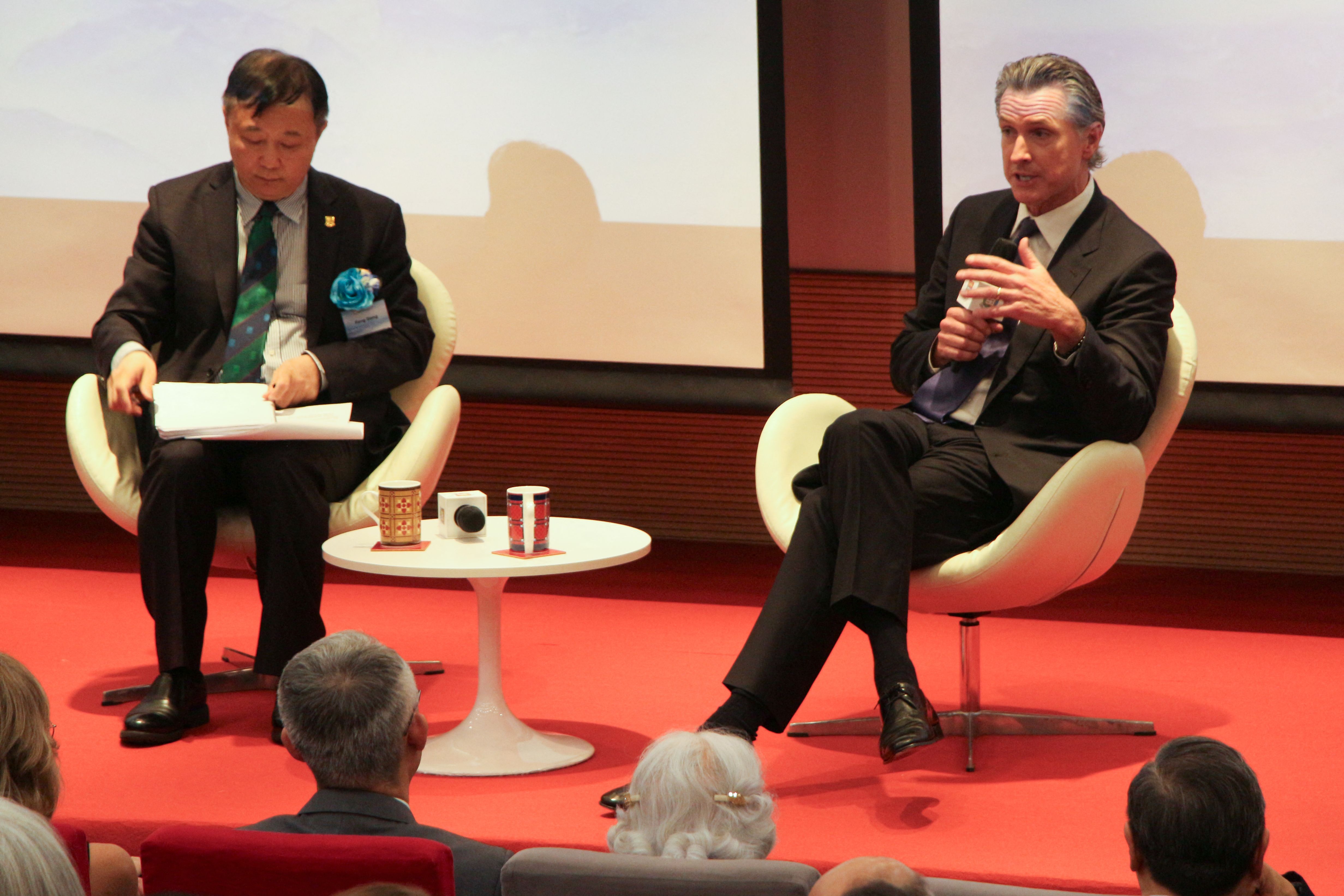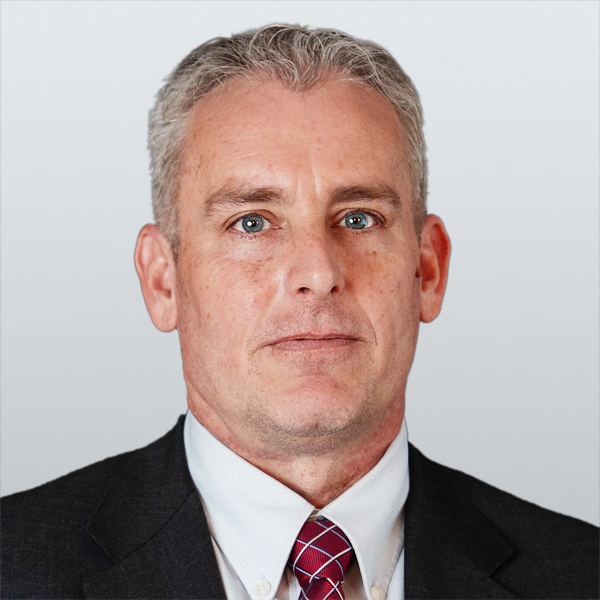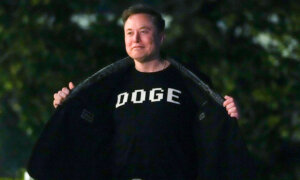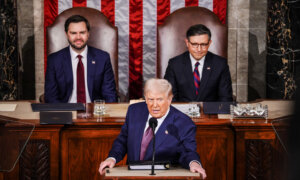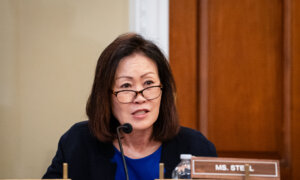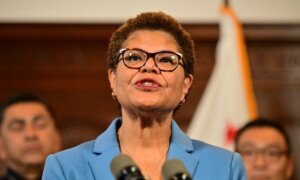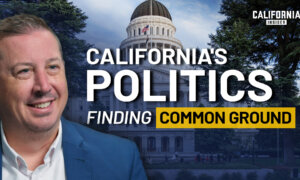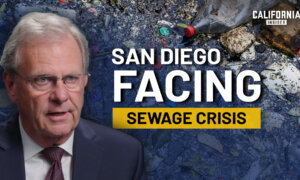California Gov. Gavin Newsom landed in China Oct. 23 after ignoring lawmakers’ pleas—in a letter sent to the governor three days earlier—to abandon the trip due to concerns about the communist regime’s role in human rights abuses and the export of chemicals used to create fentanyl.
With no response coming from the governor’s office and his weeklong trip underway, one representative took to social media to express his dissatisfaction.
“The Chinese Communist Party is reveling in this propaganda win,” Rep. Kevin Kiley (R-Calif.) wrote Oct. 23 on X, formerly known as Twitter. “Newsom refuses to bring up human rights abuses or the CCP’s role supplying Mexican cartels with fentanyl ingredients that are killing thousands of Americans.”
With the visit centered around climate agreements and business development opportunities, the governor reiterated his commitment to addressing such issues in a press release also Oct. 23.
“We must radically change the way we produce and consume energy, and it won’t be enough if we act alone,” Mr. Newsom said. “This is a global crisis, and it requires a global response.”
No mention was made of the lawmakers’ request in the press release, and the governor’s office did not respond to requests for comment on the matter.
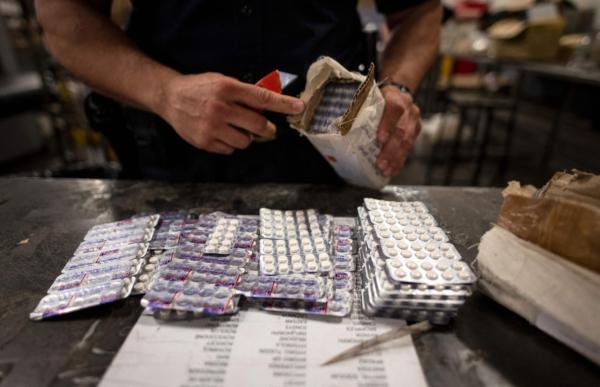
An officer from the U.S. Customs and Border Protection, Trade and Cargo Division finds Oxycodone pills in a parcel at John F. Kennedy Airport's US Postal Service facility in New York on June 24, 2019. (Johannes Eisele/AFP via Getty Images)
Citing the communist nation’s record of allowing the exportation of ingredients for fentanyl and human rights abuses, 11 Republican members of Congress representing California sent a letter Oct. 20 requesting Mr. Newsom cancel the trip, suggesting the visit served no benefit to Californians and legitimizes the Chinese regime’s anti-democratic behaviors.
“The Chinese Communist Party (CCP) is getting more brazen in its violations of human rights and aggression toward democratic partners and allies in the Indo-Pacific,” lawmakers—including Young Kim, Kevin McCarthy, Michelle Steel, among others—wrote. “These issues are too pressing for you to overlook, as they deeply impact our constituents.”
Signed by all but one Republican representative from the Golden State, Tom McClintock, the letter— posted on X, formerly known as Twitter—demanded the governor cancel the trip, absent discussions with Chinese officials regarding human rights abuses and the export of drugs similar in nature to fentanyl and materials used to create the synthetic opioid.
“The CCP refuses to cooperate with the U.S. on the fentanyl crisis,” the letter read. “For you to turn a blind eye and not raise how the opioid epidemic is impacting the state of California would be a disservice and a slap on the face for the thousands of families that have lost their loved ones due to a fentanyl overdose.”
Citing health department statistics revealing a 121 percent spike in overdose deaths in California between 2019 and 2021, the complainants suggested the governor demand action from Chinese officials to stem the flow of fentanyl and precursors.
The group dismissed Mr. Newsom’s Oct. 16 comments that his trip will only focus on climate issues and that other diplomatic efforts are the responsibility of the federal government, saying such is an excuse to avoid complicated topics.

Portraits of detained Chinese human rights lawyers Jian Tianyong (L) and Wang Quanzhang are seen as Hong Kong pro-democracy activists observe a silent protest in support of human rights lawyers in China, outside the Court of Final Appeal in Hong Kong's Central district on July 9, 2017. (Tengku Bahar/AFP/Getty Images)
“Federalism should not serve as an excuse for you to avoid having difficult conversations about the CCP’s gross violations of human rights and documented genocide of ethnic minorities,” the letter read. “As you know, the CCP has long waged a successful malign influence campaign that has corroded democratic institutions and the judicial system in Hong Kong.”
Noting the regime’s litany of human rights abuses and strict control of information, representatives urged the governor to recognize current and historical contexts—suggesting the trip can be seen as approving of, or tolerating, crimes against humanity.
“You should keep in mind that near you there will be reporters and activists being tried for violations of Hong Kong’s national security law, which criminalized speaking out against the CCP and its ideology,” the lawmakers said. “We believe that it would be an affront to California if you engage with these officials and fail to raise issues such as the genocide of minorities in Xinjiang and Tibet, transnational repression of dissidents, and other gross violations of human rights.”
The trip began Oct. 23—after a stop in Israel Oct. 20 that included a visit to the Tel Aviv Sourasky Medical Center where Mr. Newsom pledged to send medical supplies to aid humanitarian efforts in Israel and Gaza—with a fireside chat at Hong Kong University.
Mr. Newsom spoke with Peng Gong—professor, vice president and pro vice chancellor at the university—in front of an audience of students, faculty, and business leaders.
“Events like this truly highlight the power of collaboration and knowledge sharing in combating the global climate crisis,” Mr. Gong said in the governor’s press release. “By uniting leading climate scientists and experts, we hope to foster a healthier, more sustainable planet for all.”
The governor will next make stops and meet with officials in Shenzhen, Guangzhou, Beijing, Shanghai, and the province of Jiangsu before returning to California Oct. 30.
